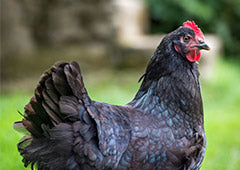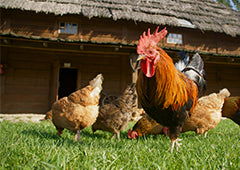There’s nothing more devastating than working tirelessly on a delicious cupcake mix or pavlova masterpiece, only to make a well in the centre and crack in…a rotten egg. Meal ruined!
Don’t be scarred for life by this unfortunate egg-cident, it can easily be avoided by running a quick test to see whether your eggs are fresh, or whether you should hold off cracking that egg into your ingredients!
The Sink Test
Fill a bowl up with cold water, then place an egg into the bowl. If the egg sinks to the bottom, then it is fresh and fine to use! If it tip toes about the bottom and stands on its pointy end, it’s still fine - but use fast. If it floats, discard - this is not an egg you want to ingest.
Other Bad Egg Indicators
There are a few other things you can do to test whether your eggs are safe to use:
-
The slosh test: Hold the egg up to your ear and shake it around. If you hear a sloshing noise, the egg is probably off. If you hear nothing, then the egg is fine.
-
Crack it open: Crack the egg onto a plate, and then see if you get a whiff of anything. A bad egg smell is quite distinct - you won’t miss it! Fresh eggs shouldn't smell at all.
Of course, the best way to guarantee fresh eggs is to collect them from your free ranging backyard chickens each day! Plus, they really do taste better - and are better for you!
One of the biggest benefits of keeping chickens is having a great supply of fresh eggs. Nothing beats having home-laid eggs in the house for delicious meals and baking treats. However, in order to get a frequent, fresh supply of eggs, keepers need to look after the chickens that lay them. There can be multiple issues that are stopping your ladies from laying which is stressful for them and for you!
Don’t worry though – the eggsperts at Chickenpedia have cracked it! They have created the Eggs in Your Basket course to help you, help your ladies lay successfully. Discover crucial information to keep your chickens happy, healthy, and frequent layers. All your egg questions will be answered in this extensive course.
From double yolkers, to soft shells, no eggs, to odd eggs, Chickenpedia cover it all! Check out their great beginner-friendly courses today.

















